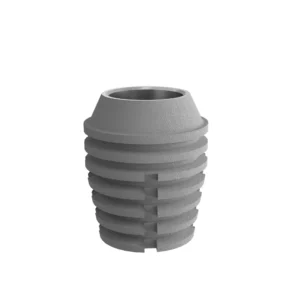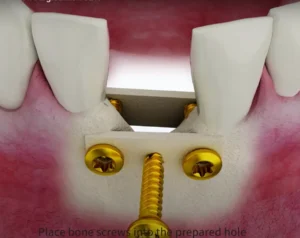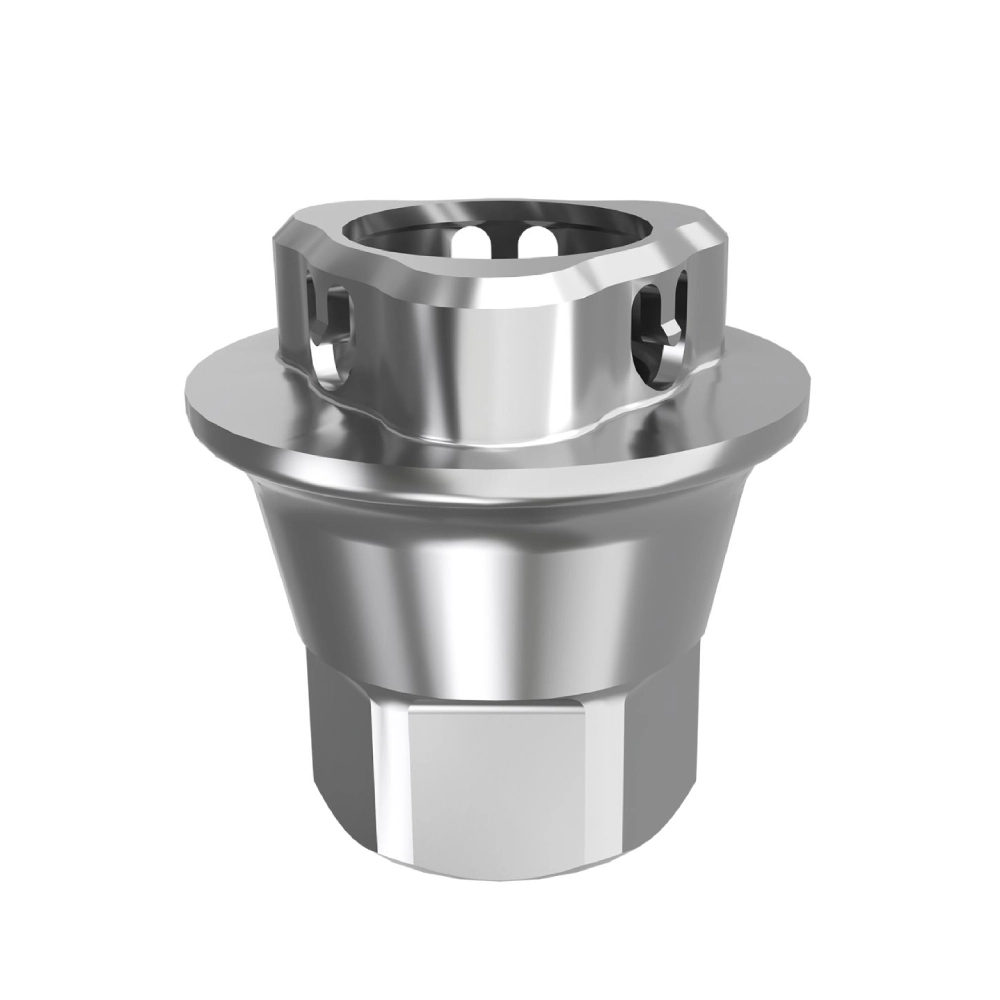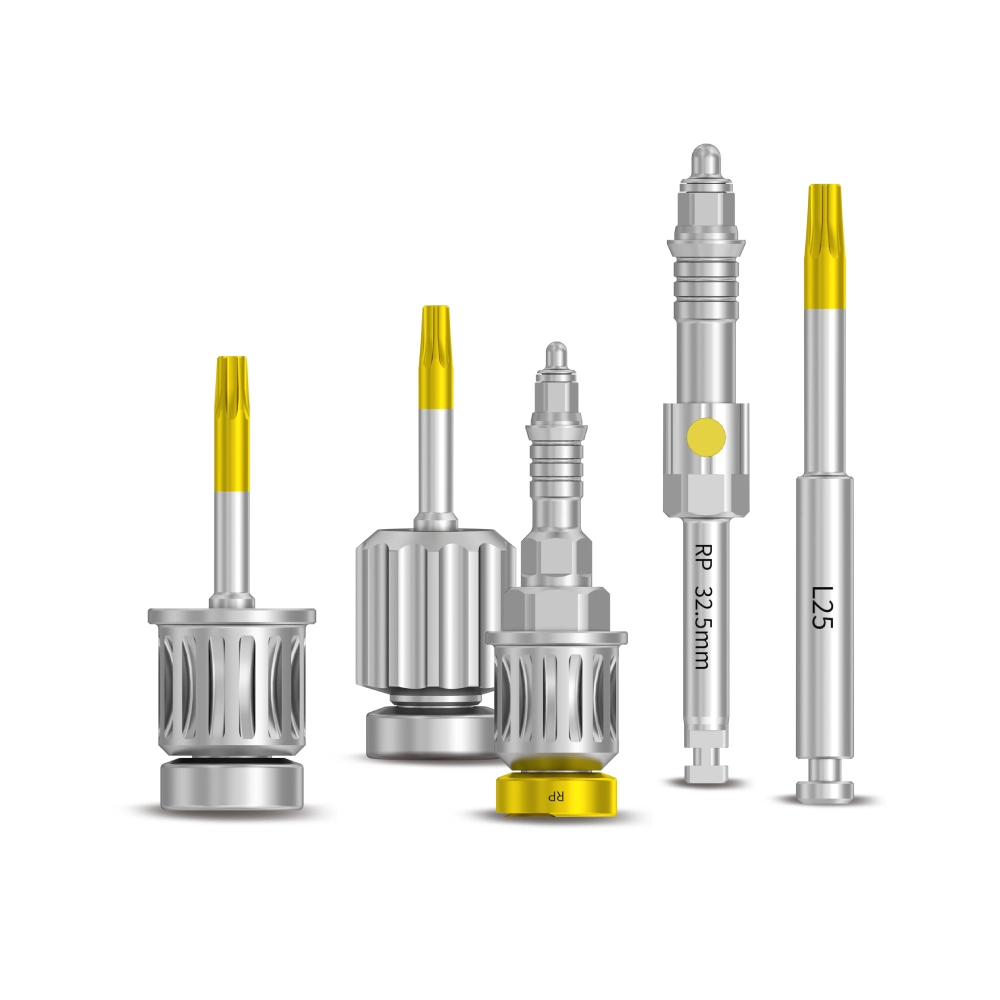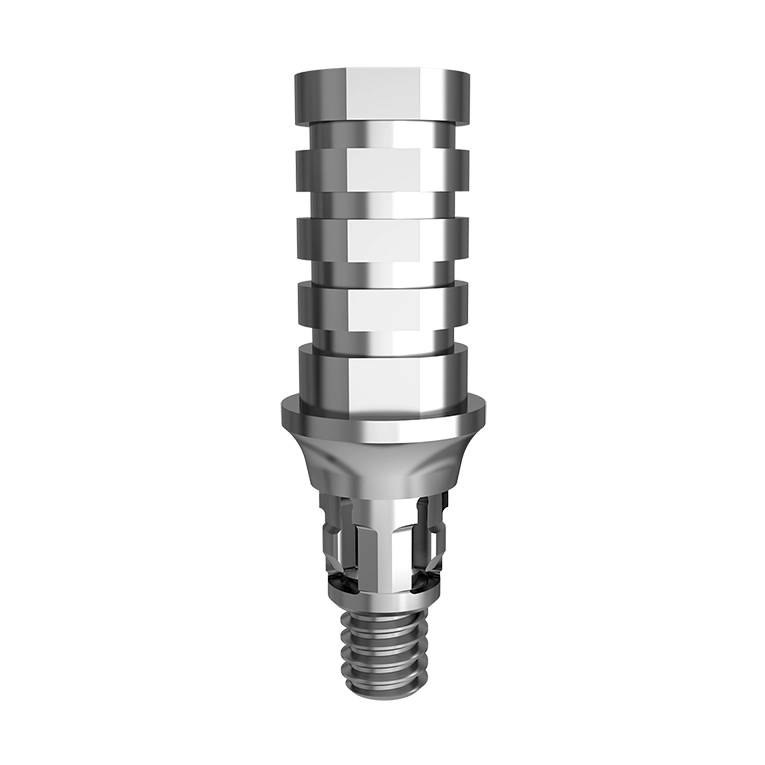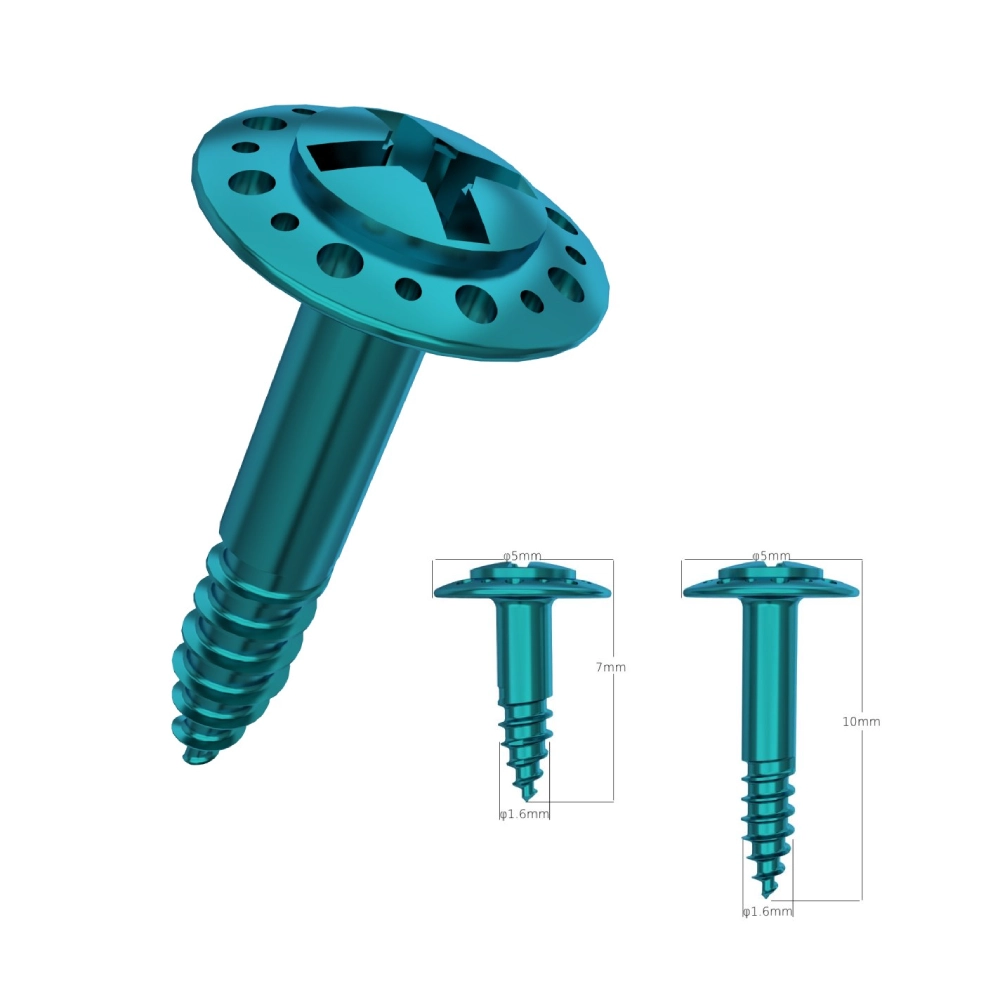Amid the rapid development of the global dental industry, dental implants have become a highly efficient and aesthetically pleasing solution for tooth restoration, with market demand continuing to grow steadily. This trend has placed increasing pressure on dental clinics worldwide, as patients now expect not only access to implant treatments but also demand greater precision, efficiency, and long-lasting results throughout the treatment process.
Against this backdrop, the success of implant treatments is influenced by a wide range of factors, among which the choice of implant systems and surgical instruments is undoubtedly one of the most critical. As the core component of implant therapy, the quality, compatibility, and biocompatibility of dental implants directly affect the success of the surgery and the patient’s long-term experience. Likewise, the precision and durability of surgical tools significantly impact the safety and smoothness of clinical operations.
Today, dental professionals face a variety of options when sourcing implants and surgical tools, including both local and online suppliers. Local suppliers offer advantages such as timely delivery and face-to-face communication, which can help resolve after-sales issues more efficiently. Online suppliers, on the other hand, often provide a broader product selection and more competitive pricing. However, regardless of the procurement channel, dental professionals must understand how to conduct effective and secure global sourcing. This ensures that the implants and surgical instruments they acquire meet high-quality standards, fulfill clinical requirements, and ultimately deliver excellent implant outcomes for their patients.
Key Considerations for Dental Clinics When Sourcing Dental Implants
In the field of oral healthcare, dental implant technology has become the preferred solution for many patients seeking to address tooth loss, thanks to its excellent restorative effect and aesthetics. For dental clinics, sourcing suitable dental implants is a core aspect of offering implant services. When purchasing implants and surgical instruments, clinics typically evaluate multiple key factors to ensure the treatments provided are safe, effective, and long-lasting.
Quality and Certification
Quality is one of the most critical concerns for dental clinics when sourcing implants. As medical devices implanted into the human oral cavity, the quality of implants is directly related to patient health and surgical success rates. Biocompatibility is a key indicator of implant quality. High-quality implants should exhibit excellent biocompatibility, integrating well with surrounding tissues and minimizing the risk of rejection or infection. For instance, implants made from high-purity titanium alloy are highly regarded for their superior biocompatibility.
Strength is another crucial aspect. Implants must withstand the high pressure generated by daily chewing and oral functions, thus requiring adequate strength and stability to ensure long-term reliability. If an implant lacks sufficient strength, complications such as loosening or fracture may occur, leading to treatment failure, patient discomfort, and financial loss.
In addition, international certifications are essential indicators of product quality. Common certifications include CE, FDA, and ISO, which demonstrate that the product has passed strict quality inspections and complies with international standards and regulations. Clinics are advised to prioritize implants that hold these certifications to ensure safety and quality.
Compatibility
In implant treatments, implants are typically used alongside other components such as abutments and prosthetic elements. Therefore, the compatibility of the implant system is vital. Clinics often seek implant systems that are compatible with leading brands such as Nobel® and Straumann®, known for their extensive experience and advanced technology in the implant field. Compatible systems enable dentists to choose components that best suit individual patient needs, supporting personalized treatment.
Good compatibility also improves clinical efficiency. Surgeons can operate more smoothly during procedures, reducing delays and risks caused by component mismatch. Additionally, a highly compatible implant system facilitates future maintenance and restoration, providing patients with more convenient service.
Reliable Distribution
A reliable distribution channel is fundamental to ensuring product authenticity and support. Clinics should choose authorized suppliers that offer full traceability and warranty. Full traceability means that each implant is linked to detailed origin records, including the manufacturer, production date, and batch number. In the event of issues, the traceability system allows for rapid problem identification and resolution, protecting the interests of the patient.
Warranty services are another key concern. As long-term medical devices, implants may encounter various issues during use. Authorized distributors who offer warranties can provide clinics and patients with assurance, reducing risks associated with potential quality issues. Moreover, these suppliers often maintain professional technical support and after-sales service teams, who can assist clinicians with guidance and troubleshooting in a timely manner.
Comprehensive Solutions
Dental clinics often look for more than just the implants themselves—they seek complete solutions that include abutments, surgical kits, drivers, and related accessories. Such all-in-one solutions meet diverse clinical needs and enhance the convenience and efficiency of treatment.
For example, a surgical kit includes all the tools required for implant placement, allowing dentists to perform procedures with greater precision. Driving tools deliver stable torque, ensuring accurate implant insertion. Accessories such as healing abutments and impression copings also play important roles in various treatment stages. Choosing a supplier that offers a full solution package helps clinics reduce procurement steps, lower costs, and ensure compatibility between all components.
Traditional and Modern Procurement Channels in the Dental Industry
With the rapid development of the dental healthcare industry, dental clinics worldwide rely on a variety of distinctive procurement channels to meet their needs for dental implants and related surgical instruments. These channels include both traditional methods and modern innovative forms, each offering different advantages in terms of convenience, product selection, pricing, and partnership opportunities.
Traditional Procurement Channels: Classic Choices with Pros and Cons
Local Distributors: Convenience with Limitations
Local distributors have long been a traditional procurement channel for dental clinics, with their greatest advantage being convenience. Due to geographic proximity, clinics can quickly obtain needed products, significantly shortening procurement cycles. In urgent cases, local distributors may even provide immediate supply, ensuring uninterrupted clinic operations. Additionally, local distributors usually have a deep understanding of the local market and can offer product recommendations tailored to local patient needs and purchasing power.
However, local distributors have notable limitations. Their product range is often narrow, typically offering only a limited selection of brands and models. This may prevent clinics from finding the most suitable implant systems or surgical instruments for their patients, potentially affecting treatment outcomes. Furthermore, due to less competition in local markets, price advantages are often limited, and clinics may face higher procurement costs.
Official Implant Brands: Quality Assurance but Complex Processes
Purchasing directly from manufacturers or authorized partners—i.e., official implant brand channels—ensures product quality and authenticity. Manufacturers typically have stringent quality control systems, producing implants and instruments that meet high standards in materials, craftsmanship, and performance. Clinics can confidently use products sourced via official channels, reducing medical risks caused by quality issues.
However, procurement via official channels tends to be more complex. Clinics need to communicate and negotiate with manufacturers or authorized partners and may be required to meet specific qualifications and purchasing conditions. Prices through official channels are generally fixed with limited flexibility, making it difficult for clinics to obtain significant discounts. Additionally, longer production and supply lead times may require clinics to place orders well in advance, complicating inventory management.
Dental Trade Shows: Expanding Horizons and Partnerships
Dental trade shows serve as important platforms for clinics to discover new brands, stay updated on industry trends, and establish partnerships. At these events, clinics can engage directly with suppliers worldwide, gaining firsthand insight into product features, advantages, and usage. In-depth communication helps clinics gather valuable product information and market intelligence to inform procurement decisions.
Trade shows also present excellent opportunities to negotiate favorable procurement terms and prices. Academic lectures and technical exchanges at these events help clinics enhance their professional expertise and skills. However, participating requires time and financial investments, including booth fees and travel expenses. The large volume of information available also requires clinics to spend considerable effort filtering and evaluating options.
Modern Procurement Channels: Efficient, Transparent Innovations
Online Dental Supply Platforms: Efficient, Transparent, and Globally Accessible
With advancements in internet technology, online dental supply platforms have gradually become crucial channels for sourcing implants and surgical instruments. These platforms offer efficiency and transparency, allowing clinics to quickly search and compare products from different brands and models, view prices, specifications, and performance details. The ordering process is straightforward, enabling clinics to complete orders and payments easily, significantly reducing procurement times.
Moreover, online platforms provide global accessibility. Clinics can purchase from suppliers worldwide, greatly expanding product options. Pricing is generally transparent, enabling clinics to compare different suppliers and select the best value products.
Dentalssale: A Trusted Online Procurement Platform
Dentalssale is a highly trusted online dental supply platform. It has become the preferred online resource for clinics seeking reliable implant systems, compatible restorative components, and high-quality surgical tools. The platform features products from the DentalMaster brand and offers compatibility with brands like Nobel and Bicon, providing extensive options for clinics.
Whether located in Europe, Asia, North America, or elsewhere, clinics can find products that meet their needs on Dentalssale. As the platform continues to expand its product lineup with brands like DentalMaster, Dentalssale not only offers high-quality products but also emphasizes comprehensive service. From product consultation and technical support to after-sales service, Dentalssale provides timely and professional assistance, enabling clinics to focus more on patient care while improving efficiency and service quality
Why Are More Clinics Turning to Platforms Like Dentalssale?
An increasing number of dental clinics are turning to platforms like Dentalssale for sourcing dental implants and surgical instruments. This shift is largely driven by the significant advantages these platforms offer in procurement control, reliability assurance, and service optimization. The key benefits are outlined as follows:
Simplified Procurement Process and Improved Efficiency
One-stop procurement:
Platforms like Dentalssale provide one-stop access to a wide range of implant systems and surgical kits. Clinics no longer need to communicate and negotiate with multiple suppliers. Their diverse procurement needs can be met on a single platform, saving considerable time and effort.
Streamlined ordering process:
These platforms simplify the ordering process by reducing redundant steps and administrative procedures. Clinics can quickly complete their purchases, significantly improving procurement efficiency and allowing more time to be focused on patient care and services.
Reduced Procurement Costs and Risk Management
Transparent pricing:
Platforms offer transparent pricing structures, allowing clinics to clearly understand the composition of product costs. This helps avoid hidden charges and pricing ambiguity often found in traditional procurement, enabling clinics to better control their purchasing budgets.
Real-time inventory visibility:
Clinics can monitor stock levels in real time and plan their orders accordingly. This prevents treatment delays due to stock shortages and reduces the risk of overstocking, which helps to free up capital and minimize financial losses.
Logistics and Service Support
Fast international shipping:
These platforms support efficient global logistics, ensuring clinics receive their orders in a timely manner. This keeps treatment workflows uninterrupted and avoids delays in patient care due to long procurement cycles.
Detailed product specifications and technical support:
Platforms like Dentalssale provide comprehensive product specification details, enabling clinics to fully understand product features and performance. This helps them make more informed purchasing decisions. Additionally, professional technical support is available to assist clinics with any issues that arise during product usage.
Cross-platform implant system compatibility charts:
These charts provide clinics with compatibility information across different implant systems, helping them choose suitable products based on their specific needs and existing equipment. This reduces the risk of procurement errors and clinical complications caused by compatibility issues.
Conclusion
The way dental clinics source implants and instruments is continuously evolving. With the rise of global supply platforms, professionals now have easier access to certified products, better pricing, and a wider selection—all conveniently available from their clinics or offices.
Whether you’re restocking implant kits or seeking a reliable long-term procurement partner, platforms like Dentalssale offer smart and scalable solutions for today’s dental practices.
🟢 Explore more implant systems and compatible surgical tools at:
👉 www.dentalssale.com

